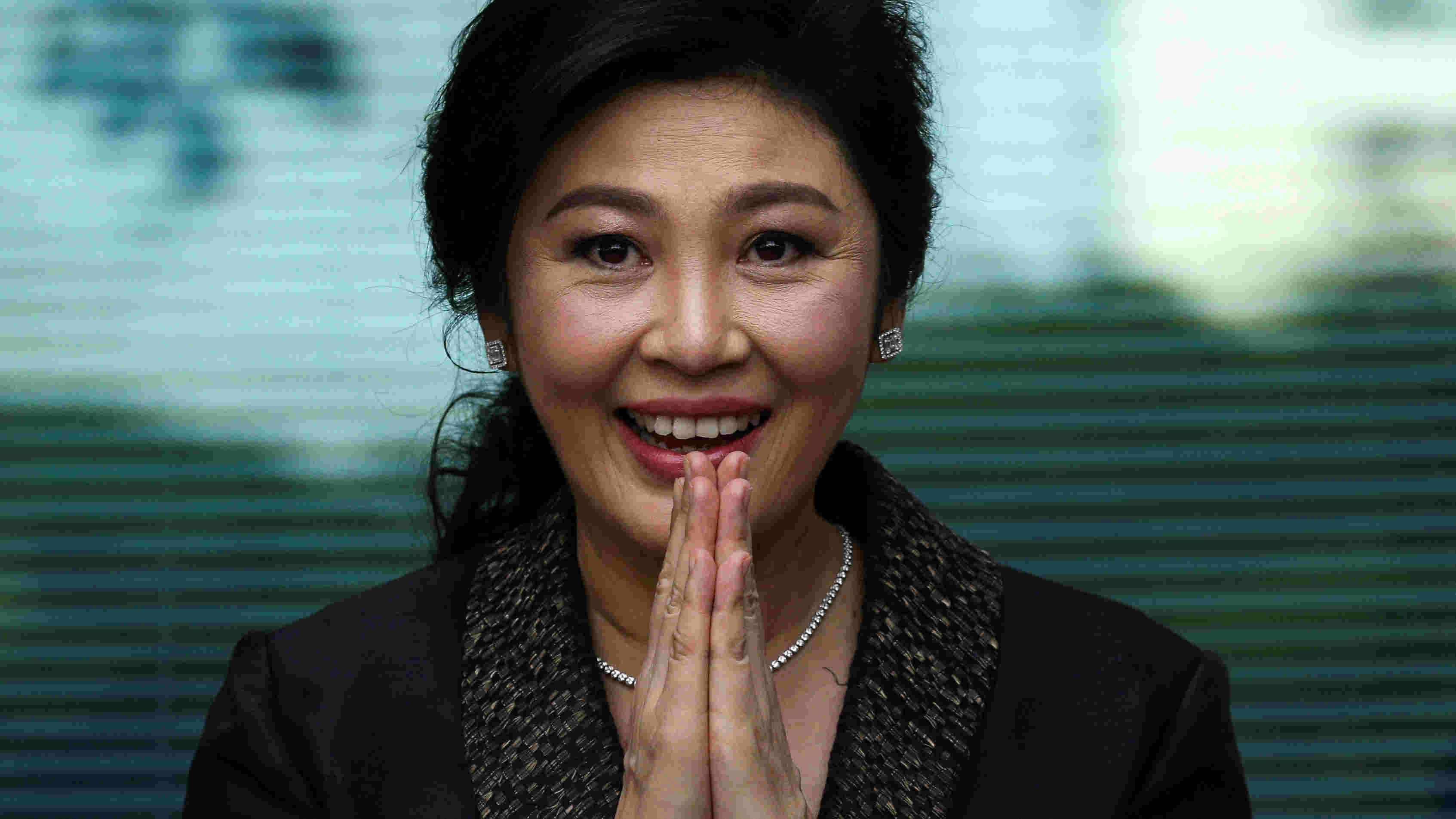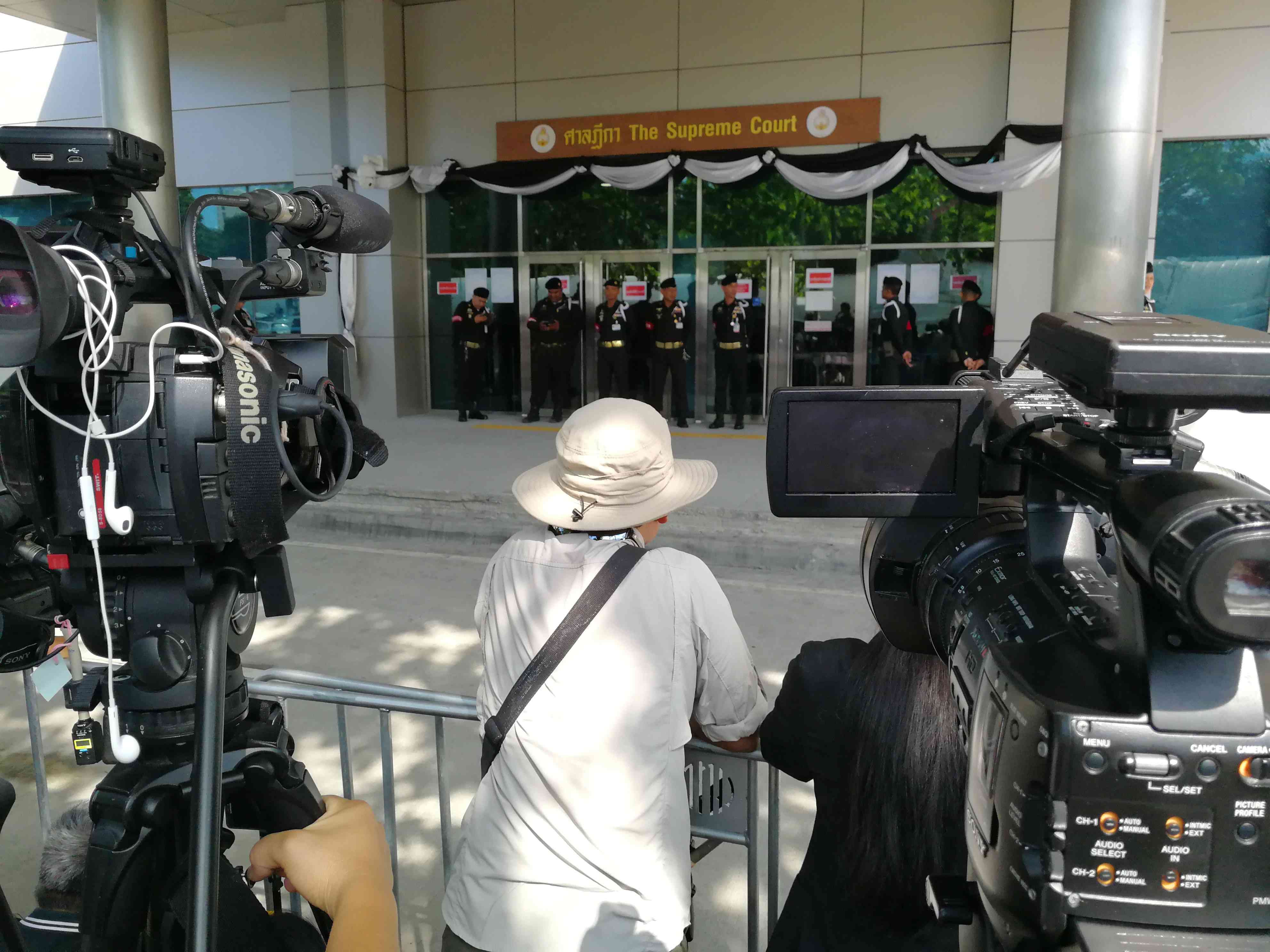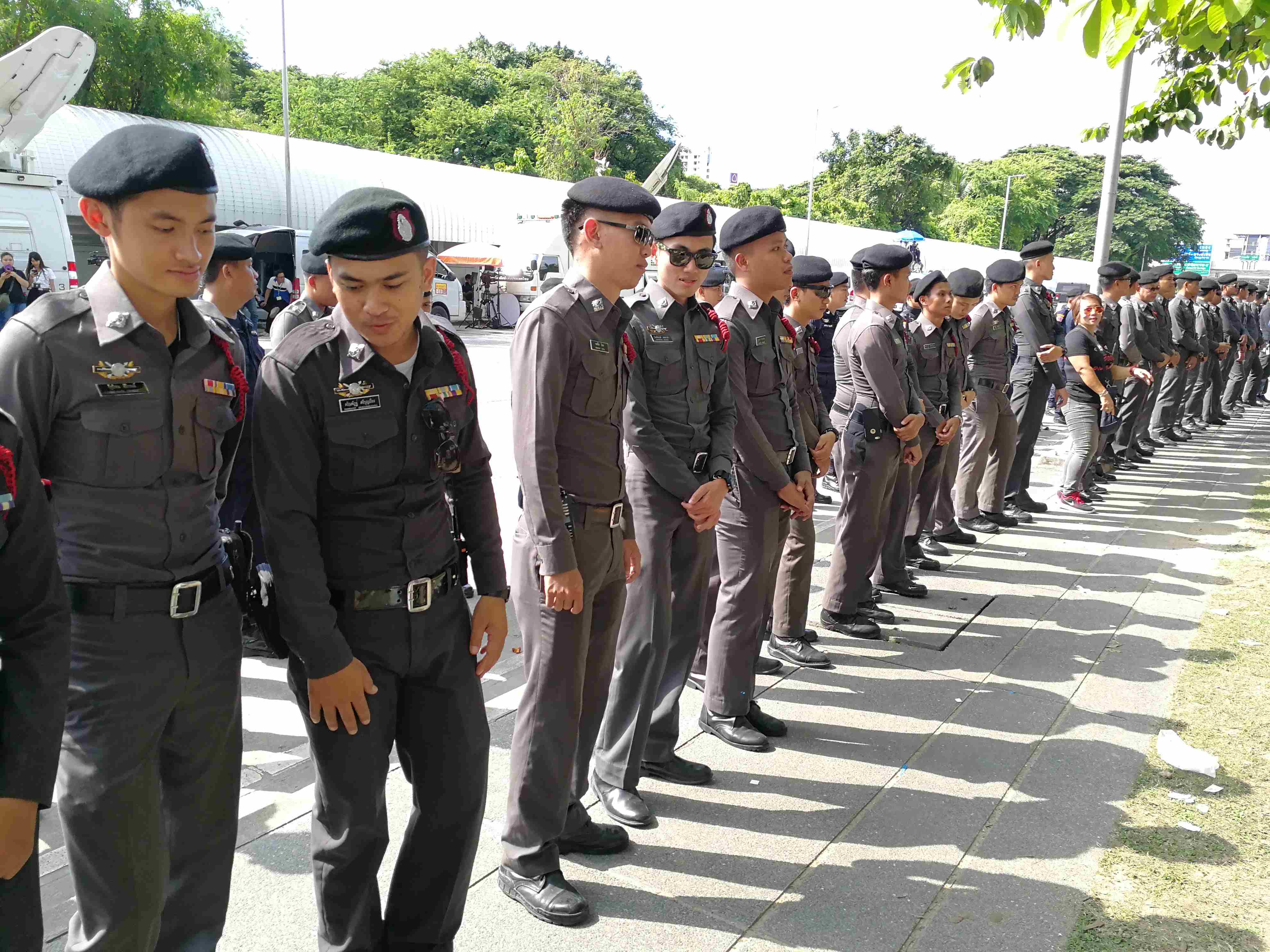
Politics
15:35, 27-Sep-2017
Former Thai PM Yingluck sentenced to 5 years in prison
CGTN

Former Thai Prime Minister Yingluck Shinawatra has been sentenced to five years in prison for negligence by the country’s Supreme Court, according to The Straits Times.
Yingluck did not show up for Wednesday’s verdict.
The court was forced to postpone delivery of its judgment on August 25 as the 50-year-old threw the court a curveball by failing to appear in court, stunning the thousands of supporters who had gathered outside.
Her lawyer Norawit Larleng cited an ear problem as the reason for her no-show. However, the court still issued an arrest warrant later.

People wait outside of the Thailand Supreme Court in Bangkok on September 27, 2017. /CCTV Photo
People wait outside of the Thailand Supreme Court in Bangkok on September 27, 2017. /CCTV Photo
The former premier’s exact whereabouts are unknown, although reports said she fled to Cambodia and flew via Singapore to Dubai. Some also believe she may be in London, where her family owns a residence.
Prime Minister Prayut Chan-o-cha on Tuesday declared he knew Yingluck’s current location but would not reveal the location until after the judgment was delivered.
"I will tell after September 27 [the day of the court verdict] where she is. Please be patient," he told the media after chairing the weekly Cabinet meeting at Government House on Tuesday.
He also said any measures taken by the government would be in accordance with the rule of law.
Three police officers allegedly assisted Yingluck to flee, and the military relaxed its close monitoring of the controversial figure days before the August 25 verdict was due.
Yingluck has made no public appearance or comments since she left Thailand.

The Thailand army stand outside the Thailand Supreme Court in Bangkok on September 27, 2017. /CCTV Photo
The Thailand army stand outside the Thailand Supreme Court in Bangkok on September 27, 2017. /CCTV Photo
Yingluck's lawyer, meanwhile, told reporters she hasn’t contacted him since her disappearance.
The case, which has gripped Thailand, stems from a rice subsidy program implemented by Yingluck’s administration.
The policy, which saw her government buy farmers' crops at prices up to 50 percent higher than market rates, was popular with Yingluck’s rural power base but left Thailand with eight billion US dollars in losses.
Yingluck remains popular with rural and poor voters but her opponents, the urban and middle-class elite, slammed the policy, saying the scheme was too expensive and open to corruption.
Yingluck has denied wrongdoing, insisting she was not responsible for the day-to-day management of the scheme and claiming that the case contains multiple flaws.
3297km

SITEMAP
Copyright © 2018 CGTN. Beijing ICP prepared NO.16065310-3
Copyright © 2018 CGTN. Beijing ICP prepared NO.16065310-3